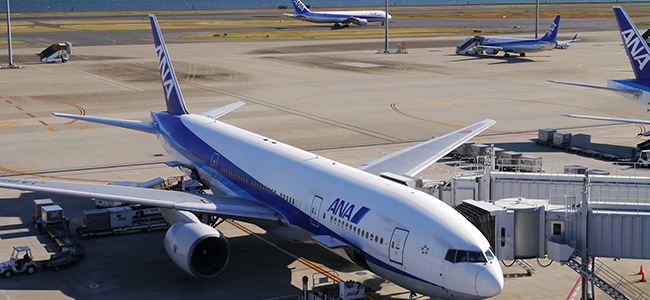Case Study
PayPal Receipts Insufficient as Proof of Expenses
Posted on 25 August 2021
The case: B, a self-employed, serviced the entertainment business. He reported income and expenses on one Sched. C. The IRS denied many of his deductions for lack of proof.
Case Study
Bank and Credit Card Statements are Insufficient Support for Deductions
Posted on 17 May 2021
The case: An S corp deducted some expenses for travel and meals, independent contractors (ICs), and office supplies. The IRS then denied all the deductions and the case ended up in court.
An Example Case
Posted on 16 November 2020
The case: A sales rep who traveled a lot to meet with clients and potential clients deducted a number of expenses. The IRS denied most of them...
2020 mileage rate
Posted on 21 January 2020
Beginning on January 1, 2020, the standard mileage rates for the use of a car (also vans, pickups or panel trucks) will be:
- 57.5 cents per mile driven for business use, down one half of a cent from the rate for 2019
- 17 cents per mile driven for medical or moving purposes, down three cents from the rate for 2019
- 14 cents per mile driven in service of charitable organizations
An Example Case
Posted on 30 October 2019
The case: C was a sole proprietor whose consulting business primarily involved traveling within 30 miles of her home to train clients in software. She kept a contemporaneous mileage log, generally recording the date or range of dates for a trip, the city, a brief description of the purpose of the trip, the number of miles driven...
2019 mileage rate
Posted on 11 February 2019
Beginning on Jan. 1, 2019, the standard mileage rates for the use of a car (also vans, pickups or panel trucks) will be:
- 58 cents per mile driven for business use, up 3.5 cents from the rate for 2018

Tax Deductions
Posted on 01 October 2018
Although the new tax law eliminated deductions for entertainment expenses, tax experts have continued to debate whether the cost of a typical business meal with a client is, in fact, deductible. In a recent analysis in Tax Notes Today, experts disagreed on whether, under current guidance, business meals with clients are always entertainment and therefore not deductible.
However, the experts agreed on these key points:
- The deductibility of client meals under the new tax law will not be clear until the IRS issues some kind of guidance.
- Businesses should be documenting their 2018 business meals. They fear if the IRS issues guidance that supports deducting client business meals, many businesses will not have the substantiation required under §274 and its regs.
Bottom line: Until the IRS (i.e., not just the new tax law) says business meals are not deductible, continue to maintain the required documentation of business meals.
Dealing with the IRS: How to maximize solutions—and minimize problems
Posted on 21 June 2018
Has your company or client ever heard from the IRS? Sooner or later they probably will.
- Send any correspondence to the IRS via certified mail, return receipt requested.
- Always maintain a good audit trail—all correspondence relating to the notice, such as copies of canceled checks, receipts, tax returns and letters.
- If the IRS does not respond within 6 weeks (8 weeks at most), send the IRS a copy of the correspondence, write “Second Response” on the top, and include the date of your first response. Tip: Include clearly marked copies of all prior correspondence with the IRS.
- If you do not resolve the problem in three attempts, use the IRS Tax Payer Advocate’s office.
- If you realize that you owe money and it was an honest mistake, ask for an abatement of penalties. Intent and past “good faith efforts” to make timely deposits may well result in penalties being abated.
2018 mileage rate
Posted on 03 January 2018
Beginning on Jan. 1, 2018, the standard mileage rates for the use of a car (also vans, pickups or panel trucks) will be:
- 54.5 cents for every mile of business travel driven, up 1 cent from the rate for 2017.

Tax-Deductible Expenses: Are You Recording All of Them?
Posted on 17 October 2017
2017 income tax preparation seems a long way off. Make it easier by tracking all the deductions you can take.
You've heard it said before: Tax planning should be a year-round process. It's so true. Your life will be a lot easier early next year when all your tax forms start rolling in.
Forms like 1099s and W-2s do a lot of the tracking for you. You only need to transfer data over to your IRS tax forms and schedules. But what about the daily stuff, the expenses you incur as a part of your workday that no one else is documenting? There are a lot of tax-deductible costs that can really add up when it's time to file.
2017 mileage rate
Posted on 21 July 2017
Beginning on Jan. 1, 2017, the standard mileage rates for the use of a car (also vans, pickups or panel trucks) will be:
- 53.5 cents per mile for business miles driven, down from 54 cents for 2016
- 17 cents per mile driven for medical or moving purposes, down from 19 cents for 2016
- 14 cents per mile driven in service of charitable organizations

Final regs on marital status issued
Posted on 01 November 2016
IRS final regs defining marital status in the tax code are effective Sept. 2, 2016. They contain few changes from the proposed regs issued in Oct. 2015.
The proposed regs said a marriage of two individuals is recognized for federal tax purposes if it is recognized by any state, possession or U.S. territory. The final regs establish a separate rule for domestic v. foreign marriages.
2016 mileage rate
Posted on 25 October 2016
The 2016 standard mileage rate for transportation or travel expenses is 54 cents per mile for all miles of business use (business standard mileage rate).
- 54 cents per mile for business miles driven, down from 57.5 cents for 2015.
- 19 cents per mile driven for medical or moving purposes, down from 23 cents for 2015.
- 14 cents per mile driven in service of charitable organizations
Documents to Retain for Taxes
Posted on 15 September 2016
The IRS generally does not require that records be kept in a specific way, but all documents that may affect a tax return should be retained.
Small business owners must keep all employment tax records for at least 4 years after the later of when a tax is due or paid.

Business Mileage Logs
Posted on 10 September 2016
The R’s were a married couple. He was a professor at a college 470 miles from their residence. She worked part-time at her mother’s farm. On their income tax return, he deducted on Sched. C mileage related to his “educational services” business. She listed on Sched. F mileage related to her part-time farming job, such as driving to look at equipment and attending auctions to buy livestock.
The IRS denied both of their mileage deductions.
Deductions Denied in Audit
Posted on 05 September 2016
The case: X had some deductions denied in audit. He claimed that in at least two previous audits the same deductions were allowed, so the issue had already been resolved in his favor by the IRS, and the result should be no different this time.
Held: For the IRS. Failure to challenge or examine an item on a tax return in an earlier year is considered a mistake of law by the IRS and so does not prevent a challenge in a later year. The IRS can correct a mistake of law any time, even if the taxpayer relied on the mistake. [Aleamoni v. Comm., T.C. Summ. Op. 2016-21]
AIPB tip: When you have a recurring expense or other tax item, do not assume it is valid because it survived an audit. Continually monitor tax rules, your recordkeeping, and how your transactions are structured, and ways to reduce or eliminate potentially risky issues with the IRS.
Home Office Write-Offs
Posted on 01 September 2016
The IRS is drawn to returns that claim home office write-offs because it has found great success knocking down the deduction and driving up the amount of tax collected for the government. If you qualify, you can deduct a percentage of your rent, real estate taxes, utilities, phone bills, insurance and other costs that are properly allocated to the home office. That's a great deal. Alternatively, you have a simplified option for claiming this deduction: The write-off can be based on a standard rate of $5 per square foot of space used for business, with a maximum deduction of $1,500. To take advantage of this tax benefit, you must use the space exclusively and regularly as your principal place of business. "Exclusive use" means that a specific area of the home is used only for trade or business, not also for the family to watch TV at night, or as a guest bedroom or children’s playroom.
Don't be afraid to take the home office deduction if you're entitled to it. Risk of audit should not keep you from taking legitimate deductions. If you have it and can prove it, then use it.
Deductible Entertainment Activities
Posted on 20 August 2016
For entertainment activities to be deductible by your firm under §274, they must meet each of four requirements:
- The person(s) from your firm must have had more than a general expectation of deriving some income or other business benefit at an indefinite future time.
- During the entertainment period, the people from your firm must have engaged in a bona fide business transaction other than entertainment for the purpose of obtaining such business benefit.
- The principal character of the combined business and entertainment was the active conduct of your company’s trade or business.
- The expenditure was allocable to the person(s) with whom those from your company engaged in the active conduct of its trade or business during the entertainment.

Normal Retirement Age
Posted on 15 August 2016
What is “normal” retirement age? Up to 1999, the “normal” age to retire—i.e., the age at which a person received full SS benefits—was 65. As of 2000, this age increases gradually over a 22-year period, as follows (Medicare begins at 65 regardless):
AIPB Tip: Reviewing Specific Expenses
Posted on 10 August 2016
AIPB Tip: Review your recordkeeping requirements for specific expenses. Auto, cell phone, travel, meals and entertainment expenses require more detail than other expenses. For other expenses, make sure the documents clearly show the date, payee, amount and business purpose of the expense.
Restrictive endorsements
Posted on 04 August 2016
To avoid losing money when customers appears to be paying their bills, watch for these red flags:
Restrictive endorsements. Depositing a check marked “Payment in Full” can be a mistake if you want to recover more on the account. This phrase may appear on either side of a check or in an accompanying letter. If an account is “disputed” (debtors can find ways to “dispute” almost any account) and you deposit the check, most courts will hold you to the wording. AIPB

Infamous Fees of 2011
Posted on 28 July 2016
The most infamous fees of 2011 were some that had targeted millions -- but that few people actually ended up paying.
Back up data files
Posted on 19 July 2016
Back up data files at the end of each tax year so have a file with complete, but limited data. Some software programs allow you to provide a file in which data for any periods not under audit are condensed or archived. -- Tax Notes Daily
“Gail Bayer is a trusted professional and a highly valued member of our team. Gail has helped my business grow and is always ready with sound financial advice. I highly recommend her services.”
—Todd Spivak, Esq., Spivak Law Firm
“I have used Gail Bayer with Innovative Bookkeeping Services for a number of years. The process is quick and easy for me and that’s certainly worth outsourcing your bookkeeping needs.”
—Autumn Edmiston, Edmiston Group
“Innovative Booking has delivered results above my expectations. The few minutes I spend talking with Gail at our bi-weekly meetings is an important reason I have a good handle on where the company is and where it’s going.”
—Tom Pollard, Owner, Tom Pollard Designs
“At first I wasn’t sure if I would like working remotely with a bookkeeper. Turns out, I like it a lot. Gail has become a valued member of my team. I can rest easy knowing that she is keeping my financials organized each month.”
—Evy Severino, CEO, Severino Consulting, LLC




